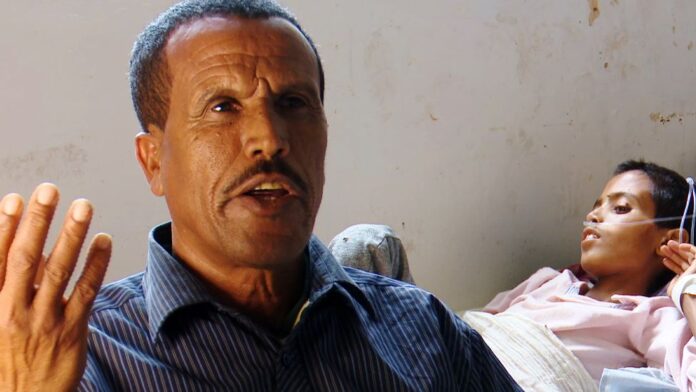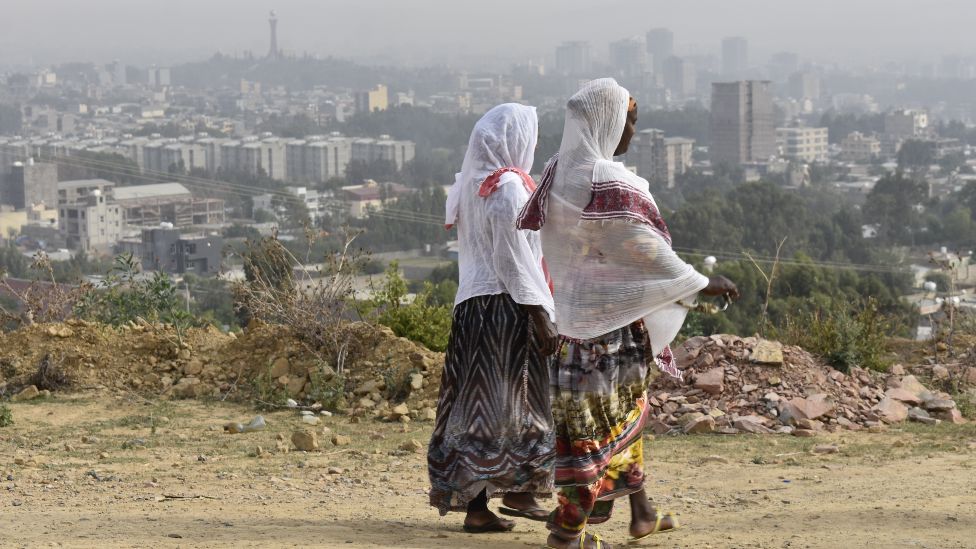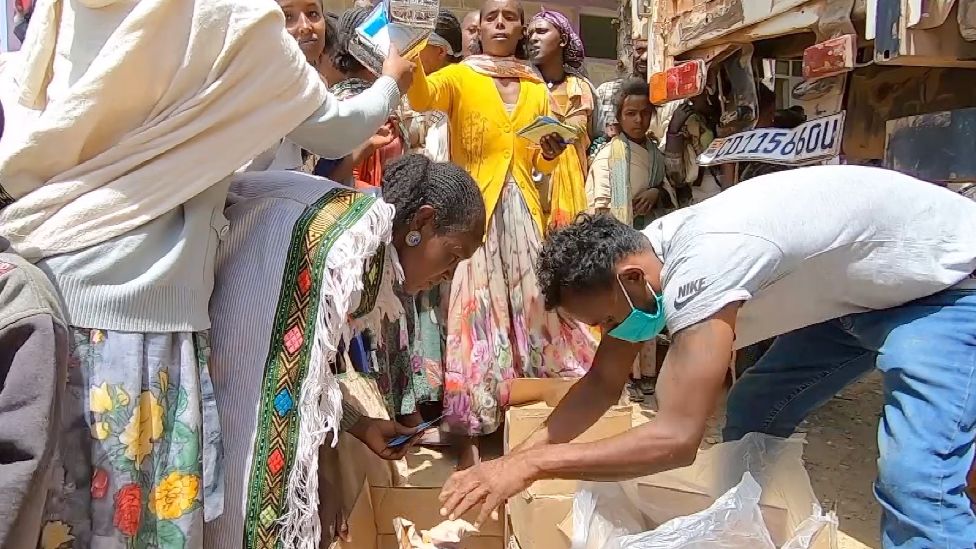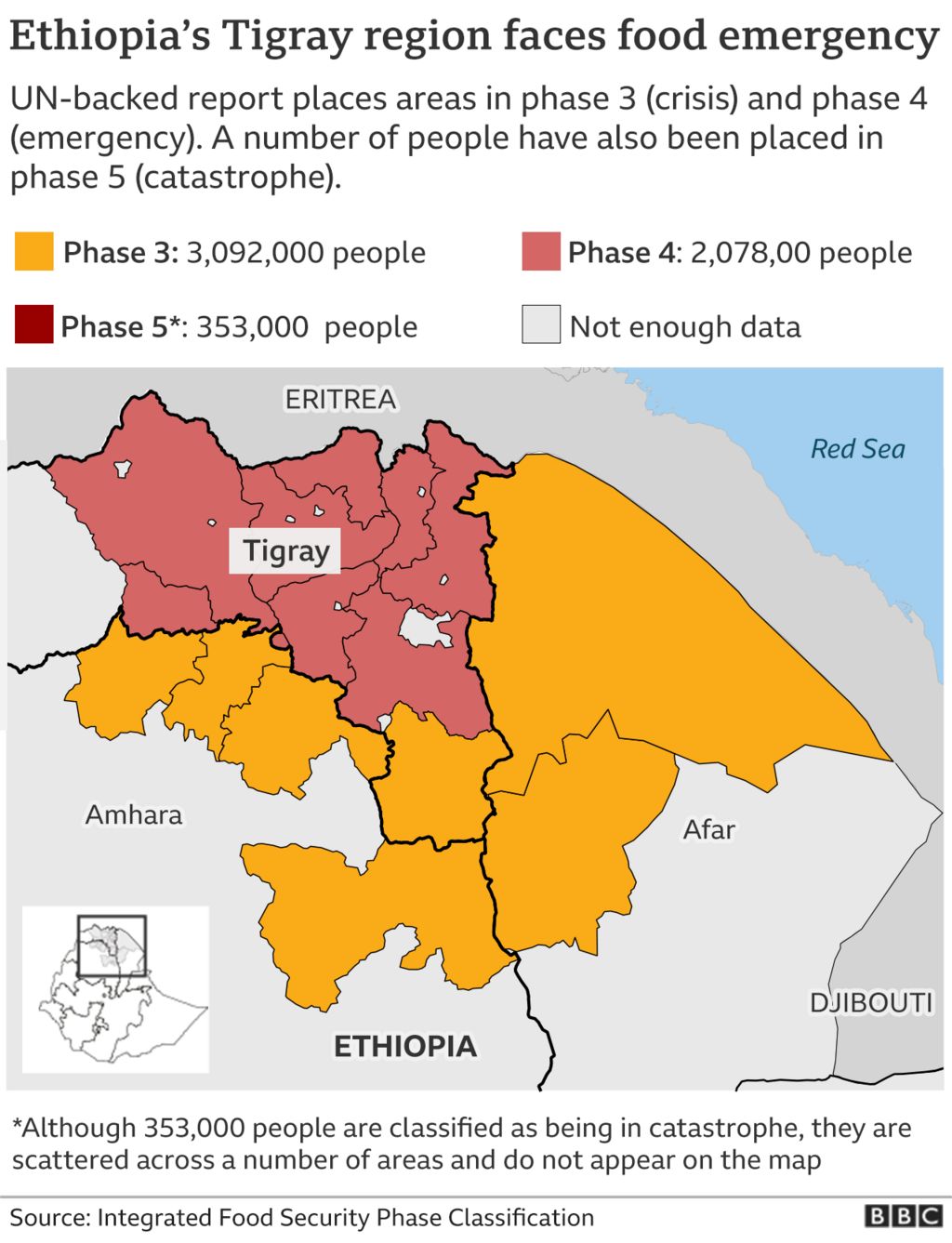
People’s lives in Ethiopia’s rocky and mountainous region of Tigray are in tatters as they deal with famine in the ruins of a war zone.
Government troops, backed by those from neighbouring Eritrea, have been involved in battle with the region’s now-ousted ruling party, the Tigray People’s Liberation Front (TPLF), since November, precipitating a humanitarian crisis.
The BBC’s Kalkidan Yibeltal has visited the region, where access can be difficult.
Tigray’s capital, Mekelle, has a semblance of calm.
Many businesses and offices are open. Compared to previous months there is more movement of people and less visibility of soldiers.
But the appearance of normality is deceptive.

Mekelle’s main hospital, Ayder, is overcrowded with patients who had come from villages and towns that had been devastated by the conflict.
Among them is 13-year-old Getish Solomon, a heart patient whose condition had deteriorated since the start of the conflict more than eight months ago.
Living with his parents and five siblings in the town of Hagere Selam, Getish was forced to travel about 50km (31 miles) to Mekelle to get treatment because their local health centre had been damaged in the fighting.
“We had hospitals and health centres and a good economy. If we needed something, we used to rush to them,” the 13-year-old’s father, Solomon Teferi, says.
As Getish requires treatment regularly, the journey to get him to a medical facility is no always easy.
“[On one occasion] the roads were closed so we had to walk for three days. That affected him a lot,” Mr Solomon adds.
Clinic turned into military camp
I visited Aleasa Health Centre in a village near Hagere Selam. The clinic is still not operating, with residents saying that soldiers had, at one point, used it as their camp.
Now aid workers are based there, with hundreds of people – mostly women and children – gathering to collect food.

Both locals and humanitarian workers say food is scarce – and the aid being distributed is not enough.
Last week, UN humanitarian chief Mark Lowcock said there was now famine in Tigray – a view he reiterated at a closed session of the UN Security Council earlier this week.


In a leaked copy of his prepared remarks, Mr Lowcock said: “Aid workers have been killed, interrogated, beaten, blocked from taking aid to the starving and suffering and told not to come back.
“The Tigray administration have reported deaths from starvation.”
The Ethiopian government denies there is a famine. It says that order is being restored across the region and humanitarian access is being expanded.
Priests killed
The conflict has not spared heritage sites and religious institutions, which had long been seen as safe havens for the distraught or the persecuted.
I visited the Orthodox Christian Church in the mountain-top village of Fredashu in eastern Tigray.
Its head priest, Abrha, 32, was shot on Christmas morning.
His father, Teklehaimanot Gebrearegawi said he was killed by Eritrean soldiers while on his way to open the church’s gates.
Mr Tekelehaimanot said he had stopped going to church as there was too much pain for him there.
A document obtained from an Orthodox Church office said that at least 100 religious officials – priests, deacons and choir members – had been killed since the conflict began.
In the town of Adigrat, which is near the border with Eritrea, the Catholic Church compound was shelled, leaving the school library and funeral home damaged.
“The last seven months have been a nightmare for us. The communities were simply overrun by armed forces from all sides,” says Abune Tesefaselassie, the local bishop.
“The ruins can be rebuilt soon but the human mind, the human heart, the family fabric, the communities, the society, along with long-held values, all these have been crushed.”
SOURCE: BBC




